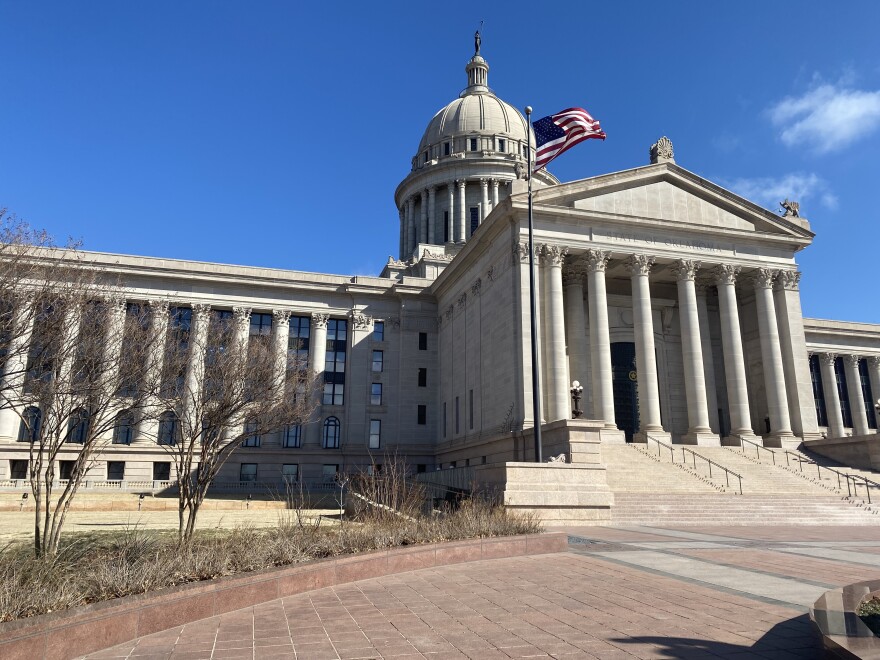The Five Civilized Tribes have rejected an invitation to serve on a task force created to address Governor Stitt's concerns about the impact of the McGirt decision.
TRANSCRIPT
Dick Pryor: This is Capitol Insider - taking you inside politics, policy and government in Oklahoma. I'm Dick Pryor with Quorum Call publisher Shawn Ashley. In our top stories of 2023 ranking, Shawn, we chose the ongoing contentious state-tribal relations - more specifically Stitt-tribal relations - as the number one story and the biggest story to watch in 2024. It's already playing out that way. Governor Stitt created a task force to provide regulatory guidance on the impact of the 2020 U.S. Supreme Court decision in McGirt v. Oklahoma. How was the task force constructed?
Shawn Ashley: Well, Governor Stitt issued an executive order that created the One Oklahoma Task Force, and its 13 members include the governor, attorney general, legislative leaders, law enforcement officials, but only two tribal representatives - one representing the five tribes and one member representing the remaining tribes. Now, this task force is the second Stitt has created to address issues related to McGirt. He created the first in July of 2020, shortly after the U.S. Supreme Court decision, and it proposed five guiding principles for state-tribal relations, but it took no further action.
Dick Pryor: The Inter-Tribal Council of the Five Civilized Tribes sent a letter to Governor Stitt, advising him that they would not participate in the task force. What's their objection?
Shawn Ashley: Well, there were really several reasons. First, the tribes said the executive order and the task force it creates, quote, “is designed to divide rather than unify and to make political points rather than seek genuine solutions.” The tribes also took issue with Stitt’s assertion that public safety was endangered by the McGirt decision. The Inter-Tribal Council said, “At its core, the McGirt v. Oklahoma decision is a pro-public safety ruling.” And they noted that, “the decision has increased police and prosecutors and empowered tribal courts to enforce the law and deliver justice to victims.” And of course, the council also disagreed with only two of the task force's 13 members being tribal representatives. They said, “the structure of any task force must also reflect respective government to government dialogue with each of the 38 unique tribes in Oklahoma. The state has no authority to mandate any tribe to defer to another tribe to speak on its behalf.”
Dick Pryor: Without tribal participation, what happens now with the task force?
Shawn Ashley: Well, it appears it will still move forward. Abigail Cave, Stitt’s spokeswoman, noted in an email, “the executive order includes language that allows additional groups to present to the task force upon request. We are hopeful the tribes will reconsider,” Cave said, “but Governor Stitt will continue to seek input from all parties.”
Dick Pryor: Budget hearings are continuing for state agencies as they take their budget requests to legislative committees. Take us inside the room for a minute. How do those hearings work?
Shawn Ashley: The budget request and presentation format were standardized several years ago to ensure that everybody's looking at the same set of numbers. That results in something a lot of us dread: A PowerPoint presentation in which agency heads walk legislators through their budgets, discussing their accomplishments, challenges, and budgetary needs, and the justifications for them. One thing agencies were asked this year that is a little different than in years past concerns previous funding requests and whether all that money has been or will be spent. That indicates we might see lawmakers reclaiming some of those unspent funds during this budget cycle and using them for different purposes. Lawmakers, of course, are free to ask questions throughout the presentations, and believe me, they do. Most questions pertain to the budgets, but others address policy issues the agency is involved in or the lawmaker has an interest in.
Dick Pryor: Thank you, Shawn.
Shawn Ashley: You're very welcome.
Dick Pryor: For more information, go to quorumcall.online. You can find audio and transcripts at kgou.org and look for Capitol Insider where you get podcasts. Until next time, with Shawn Ashley, I'm Dick Pryor.
KGOU produces journalism in the public interest, which is critical to an informed electorate. Listeners like you provide essential funding for Capitol Insider. Make your contribution at KGOU.org.





